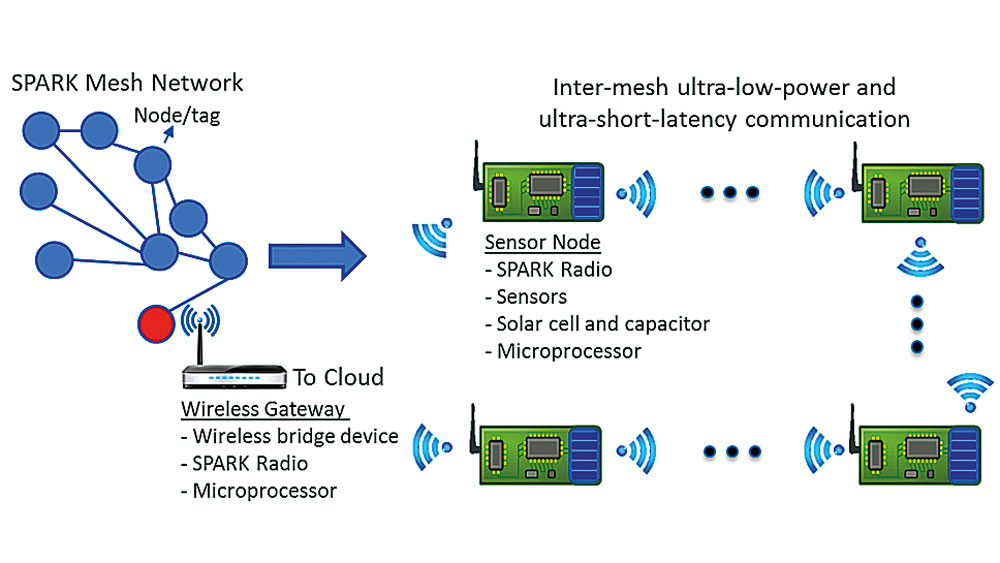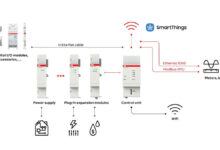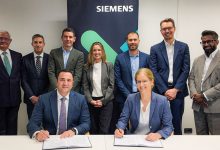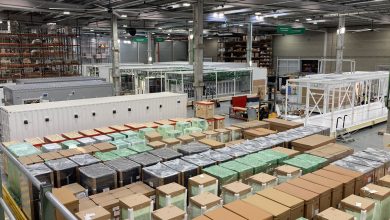SPARK Microsystems wins Nokia Open Innovation Challenge 2018
Providing an Ultra Low Power and Latency Wireless Technology for the IoT
SPARK Microsystems, which is developing a low-power wireless transceiver for the industrial Internet of Things revolution, has been named the winner of the Nokia Open Innovation Challenge 2018 (NOIC). To help bring its innovative solution to the marketplace, Nokia will provide SPARK Microsystems with USD100,000 as well as access to resources across Nokia and Nokia Bell Labs to further explore and develop their solution.
AOMS Technologies and Razor Secure were tied for second place and will split a USD75,000 prize, with each start-up also given the opportunity to work with Nokia and Nokia Bell Labs to investigate how their solutions can integrate with, and enable, the Future X network.
“This year’s NOIC brought together many innovative start-ups with impressive products, technologies and solutions that will shape the world of industrial automation. While competition was tight, SPARK Microsystems was selected as the winner for its low power wireless transceiver chipset that has the potential to help ‘spark’ the next industrial revolution,” Marcus Weldon, President of Nokia Bell Labs and CTO of Nokia, said.
“SPARK is honoured to be selected as the winner of this year’s prestigious award. Nokia and Nokia Bell Labs are networking, communications and wireless technologies leaders, and we look forward to collaborating on delivering innovative solutions for edge devices, sensors and wearable applications. These applications are a great fit for our ultra-low power and ultra-short latency ground-breaking wireless technology and are aligned with Nokia’s vision of the future,” Fares Mubarak, CEO of SPARK Microsystems, mentioned.
SPARK Microsystems, based in Montreal, came out on top of more than 300 start-up companies from the around the world that submitted entries to NOIC. This year’s competition was launched in July and focused on products and solutions for the industrial automation and industrial Internet of Things.
The entrants went through two assessment rounds, with 6 finalists invited to pitch and demonstrate their ideas to an international selection jury at an event held on December 6 at the iconic headquarters of Nokia Bell Labs in Murray Hill, N.J. The selection jury was led by Weldon and was comprised of leaders from across Nokia, Nokia Bell Labs and NGP Capital.
The three other competition finalists that participated in this event included INVOLI, NKN, and XXII, with novel approaches to drone air traffic information systems, a novel internet overlay network, and xR and video analytics solutions for industrials, respectively.
The winning solution – The SR1000 device
The new SR1000 device from SPARK Microsystems can communicate with such low energy that it can be powered by a simple low cost solar cell or other energy harvesting device and use a capacitive cell for energy storage. This eliminates wires and batteries, and vastly simplifies the installation process and extends the life of wireless devices.
The ultra-low latency and energy efficiency of the SPARK radio enables robust and high performance mesh network capabilities when compared to other protocols.
However, unlike RFID, the SR1000 device can accept other machine input, such as engine hours, temperature, humidity, or other sensor input, thus promoting a wide range of device analytics to help improve overall corporate operational costs.
The communication latency of the SR1000 is so short that it can be used in the feedback loop of control systems such as in robotics to remove the need for wiring or complex timing management.
The SR1000 can be deployed in a mesh network to enable long range and agile short-latency communications within dense low-power networks.
SPARK can support device-to-device, star, and mesh network configurations. These features allow for increased connectivity and reliability, as well as better coverage of large areas, factories, and warehouses. A gateway device can then send the SPARK Network data to the cloud.







